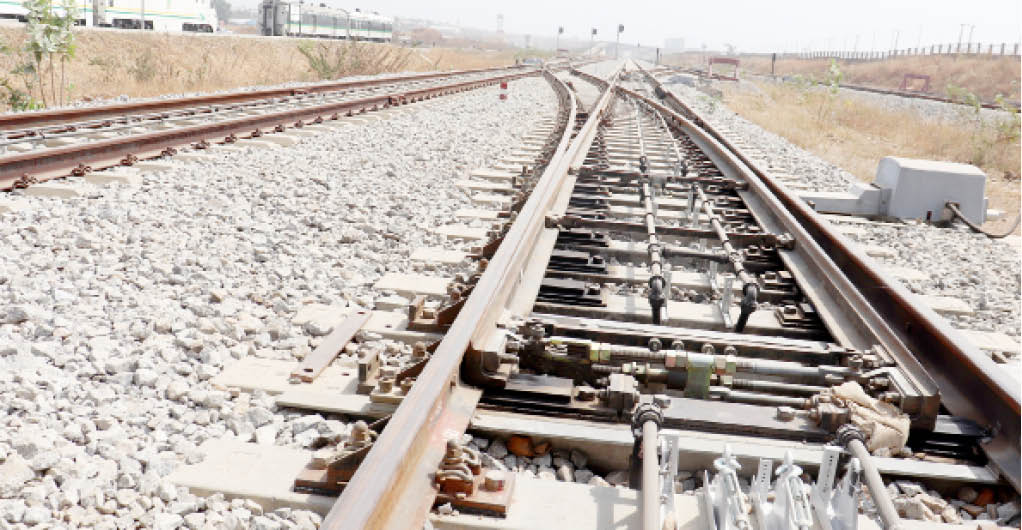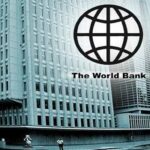Nigeria’s debt to China has continued to attract critical reviews after China increased its lending to African countries under its Belt and Road Initiative (BRI) and the Forum for China Africa Cooperation (FOCAC). Daily Trust examines the issues.
In August, 2020, the Nigerian House of Representatives summoned the Minister of Transportation, Rotimi Amaechi, over alleged clause of ‘sovereign immunity’ in the loan agreement between Nigeria and China. Nigeria sought to obtain $500 million loans from China’s Export-Import Bank for the Nigeria National Information and Communication Technology Backbone Phase II Project.
- Malami: Prominent Nigerians financing terrorism will be prosecuted
NPA debacle: Hadiza Bala-Usman faces panel over N165.3bn ‘unremitted’ funds
Article 8(5) of the agreement states that “the borrower (Nigeria) hereby irrevocably waives any immunity on the grounds of sovereign or otherwise for itself or its property in connection with any arbitration proceedings pursuant thereto, except for the military assets and diplomatic assets.”
The controversial clause was interpreted by some analysts to mean that if Nigeria were to breach the loan agreement and China the lender won the case in an arbitration, China will be able to enforce whatever arbitral award they win against any property of Nigeria except military or diplomatic assets.
Other analysts submitted that it is standard practice for the lender to insert such clauses to secure its investment in the event of a default. They argued that what it means is that no country can raise its sovereign immunity under international law to foreclose recovery of debt.
Nigeria’s Minister of Transport, Rotimi Amaechi, hinted that such uproars about the loan could force the Chinese lenders to withdraw, as it all but suggests a likelihood of default on the loan.
Between 2000 and 2017, China has reportedly given about $143bn in infrastructure loans to African countries, many of which are concessional loans, credit lines and development financing.
Although Nigeria has requested loans from China for its major projects at railways, airport, seaports, highways, power stations, gas pipelines, the country is now indebted to China to the tune of $3bn as of March 2020, according to the Debt Management Office (DMO). It says this represents 3.9 percent of Nigeria’s total public debt of $79bn.
For example, the 186km standard gauge Idu-Abuja-Kaduna railway which was completed with Chinese Government loan of $500m was through the China Exim Bank at a 2.5 per cent annual interest rate in 2010. The loan is to be repaid over 20 years with a grace period of seven years. The Chinese construction company, CCECC completed the project in 2016.
In July 2018, the Nigerian Government proposed to borrow $5.851bn from China to fund some railway projects. A breakdown of this shows that the government requested $1.231bn for the Lagos-Ibadan segment of the Lagos-Kano-Jibiya route modernisation; $1.146bn for the Kano-Kaduna segment; and the Lagos-Calabar costal railway project $3.474bn.
In August 2019, the Nigerian Government requested for $4.93bn loan from the China Exim Bank for the 3,050 mega-watts Mambilla hydropower generation plant. The fund was yet to arrive, according to sources.
In October 2020, the Nigerian Government requested for $3bn for the rehabilitation of the Port Harcourt-Maiduguri eastern railway line from the same Chinese bank. The fund was also yet to be accessed.
There is also a request for $11.1bn loan for converting standard gauge to narrow gauge such as locomotives, coaches, local content coastal railway from Lagos-Shagamu-Ijebu Ode-Ore-Benin City-Sapele-Warri-Yenogoa-Port Harcourt-Ikot Ekpene-Uyo-Calabar with branch line from Benin City-Agbo-Ogwashiukwu-Asaba-Onitsha Bridge.
On Tuesday December 15, 2020, the Bank of China approved the $2.5bn loan request by the Nigerian Government to finance construction of the Ajaokuta-Kaduna-Kano AKK gas transmission pipeline, which commenced in July, 2020. The pipeline will carry liquified natural gas from Nigeria’s South to the North.
According to the DMO, projects so far executed with Chinese loans are: Nigerian National Public Security Communication System Project $399.5m; Idu-Kaduna railway $500m; Abuja Light rail $500m; Nigeria ICT infrastructure backbone $100m; four airports expansion projects at Abuja, Kano, Lagos and Port Harcourt $500m; Zungeru hydropower $984.3m; 40 parboiled rice plants $325m; Lagos-Ibadan railway $1.267.3bn; Abuja-Keffi road upgrade $460.82m; and supply of rolling stock for Abuja light rail $157m; and greater Abuja water project $381m.
When all the requests from China are accessed, it will raise Nigeria’s debt stock with China. Thus, there have been concerns about the repayment of these loans, the Nigeria government has since began repaying the already executed loans at a slow pace.
Over the years, Nigeria and other African countries have borrowed from other lending institutions such as the International Monetary Fund (IMF) and World Bank. They have also borrowed from the international capital market such as the Eurobond.
Records from DMO shows that Nigeria has borrowed from the European Union’s Eurobond, International Development Association among others. Cumulatively, Nigeria owes its international lenders some $79bn.
While these traditional donors attach conditionalities on good governance, rule of law and economic policies, Chinese loans under the BRI focuses on providing the infrastructure needs in developing countries with no visible political aims.
Several African policy watchers have continued to question the gains of loans and aids to the continent by interventionists. Concerns of debt sustainability and debt trap remain.
A CNBC report quoted Elizabeth Stephens of the Geopolitical Risk Advisory as saying that the loans, which are tied to projects are not able to address poverty in Africa’s poor nations.
“This is because African governments often lack the will or capacity to ensure the proceeds from mega projects have the desired trickledown effect and Chinese investors do not make this a prerequisite of investment,” she said.
Also, a railway expert Rowland Ataguba called for caution on Chinese loans, explaining that most of the procurement have not been transparent and competitive and is therefore unlikely to provide value as have been seen in similar Chinese loans in Tanzania and Ethiopia.
“Government also lack the capacity to think through the entire intermodal transportation value chain of which railway is part of,” he said.
But a study published by Chatham House in August 2020 argues that the BRI is, in fact, motivated largely by economic factors.
The paper titled: ‘Debunking the Myth of Debt-trap Diplomacy: How Recipient Countries Shape China’s Belt and Road Initiative’ agreed with the criticism that some of the development financing have been fragmented and uncoordinated.
“Chinese policymakers should improve project governance and SOE regulation. China’s loosely coordinated and weakly regulated development financing system often yields poor results at high cost, generating blowback against China, as the Sri Lankan and Malaysian cases show,” the paper stated.
The paper however argued that recipient governments cannot expect China to carry out due diligence on their behalf as per the viability projects they want to be funded.
“Since Chinese development financing is recipient-led, these governments must take greater responsibility for ensuring that projects are viable and financially sustainable,” the paper said.
“They must also bargain harder and more judiciously with Chinese partners, who are primarily driven to make profits, and must take the lead in ensuring developmental benefits for local people. In addition, tendering should be open to minimize corruption.
“Since Chinese regulations continue to rely on host-country governance, recipients must bolster their domestic regulations, and their inspection and enforcement capacities, to ensure that projects do not inflict social and environmental harms.”
The study pointed out that civil society and political opposition groups in developing countries therefore have crucial roles to play, while warning that like states they “need to avoid a conspiratorial view of the BRI or blaming ‘China’ exclusively for problems.”
“The BRI is not a well-crafted Chinese plan, and recipient governments are equally or even more to blame for poorly conceived development projects. Externalizing blame only allows domestic elites to evade accountability. It can also border on racist nationalism.
“Civil society and opposition groups would be better advised to demand a transparent and participatory approach to project design and management,” the report further submitted.
The executive director of Centre for China Studies, Charles Onunaiju, pointed out that being on concessionary terms with interest of about two per cent as against commercial loans and below market rates, sometimes with some conditionalities, the Chinese loans are better for African developmental needs.
“The Chinese loans are not just a give-away; they are tied to projects which have favourable factors such as implications for cutting business costs, generating employment, economic viability, social inclusion and environmental friendliness,” he said.
He added that the project delivery has specific time frame except where there is delay in counterpart funding by the government. This funding, usually 15 per cent, is allowed to give a sense of local ownership of the project.
In his view, Professor Yusuf Zoaka of the Department of Political Science, University of Abuja, said countries have the greater responsibility to determine development they want, maintaining that for Africa, infrastructure which encourages economic development and reduce unemployment such as railways, roads, electricity, airports, seaports are needed.
“I don’t think there is anything wrong, if we are getting loans from China which are tied to infrastructural development. I think there must be discipline on our own part,” Prof Zoaka said.
“So, although people are saying the Chinese plan to takeover this or that and that is going to affect the sovereignty of the nation, I don’t think there is anything like that.
“When you also enter into some bilateral agreements, it is you that have accepted to limit your own sovereignty. It doesn’t mean that the Chinese are taking over our assets. It is voluntary and they have to recover their money.
“If the railways are properly managed by increasing the frequency of trips, routes and more coaches to also convey heavy equipment, the railways would be busy and in no time, they will recover their money.”

 Join Daily Trust WhatsApp Community For Quick Access To News and Happenings Around You.
Join Daily Trust WhatsApp Community For Quick Access To News and Happenings Around You.